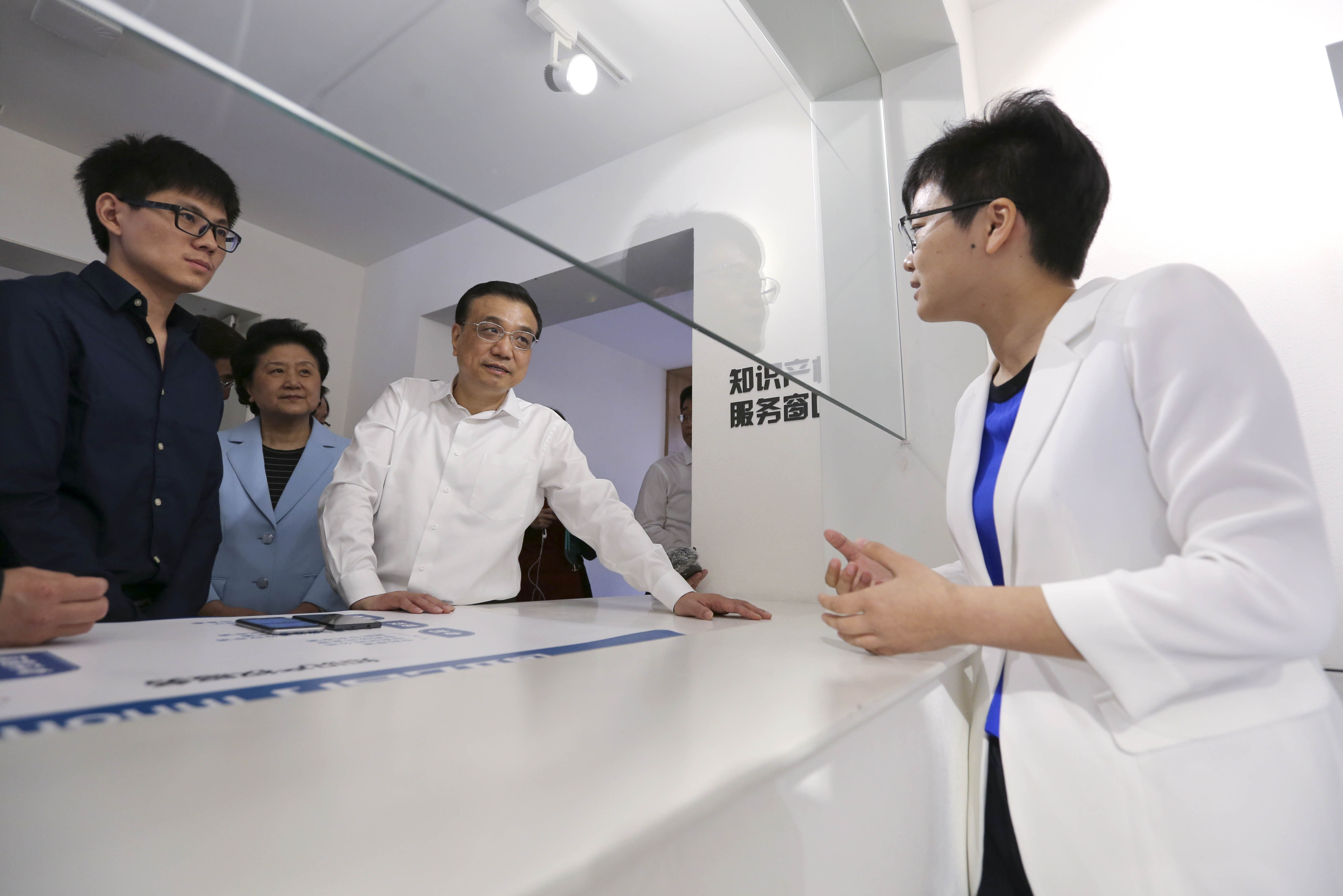
Premier Li Keqiang visits the innovation hall known as “Inno Way” in Zhongguancun of Beijing on May 7, 2015.
At the first State Council executive meeting of the year on Jan 4, presided over by Premier Li Keqiang, the first and foremost thing deployed was still administration streamlining and power delegation.
Since this government stepped into office, for five years the theme of the each year’s first State Council executive meeting has been accelerating government function transformation, administration streamlining and power delegation. Records show that 41 executive meetings mentioned the theme, becoming one of the most known and discussed in political and economic fields since 2013.
The proposal of the reform was gradually put forward and improved. “With many years of practice in administration reform, we found that simply cutting organizations and staff members was not enough. On one side, it will cause the rebound; on the other, it will increase the risk of corruption. Therefore, government function transformation is the core of administration system reform,” said Wang Manchuan, secretary-general of the China Society of Administration Reform.
“Power delegation, regulation improvement and service optimization are three aspects that are supplementary to each other, and should be promoted in coordination,” Wang said.
Administration approval system reform, which has been going on in China for 15 years, is the breakthrough point to accelerate government function transformation.
Premier Li once promised at a press conference after he took office that this term of government would cut over one-third of the 1,700 existing administration items.
Progress has been beyond expectation. “In the previous decade, the State Council cut nearly 70 percent of administration approval items, and the remaining 30 percent is more important power that will be difficult to cut. By the end of 2014, this term of government had already fulfilled the one-third task,” Wang said.
“At first, the power delegated was not that important. Authorities are most reluctant to give up the remaining power. One is because some departments do not want to lose core power and interest; the other is because local governments cannot take up the responsibility and the lack of supervision will cause market disorder,” Wang explained.
At the first executive meeting this year, Premier Li also stressed eliminating agent services that go against regulations.
Wang explained that there are three kinds of “red cap agencies”: First is service organizations or private organizations under the direct control of administration departments; second is market or private organizations transformed from subordinate units of government departments, and third is seemingly independent market or private organizations that actually have close relations with governments.
“In recent years, this term of government has canceled over 300 agent service items, yet ‘red cap agency’ is still a difficult problem. Next we will need to make efforts to fix the problem,” Wang said.
